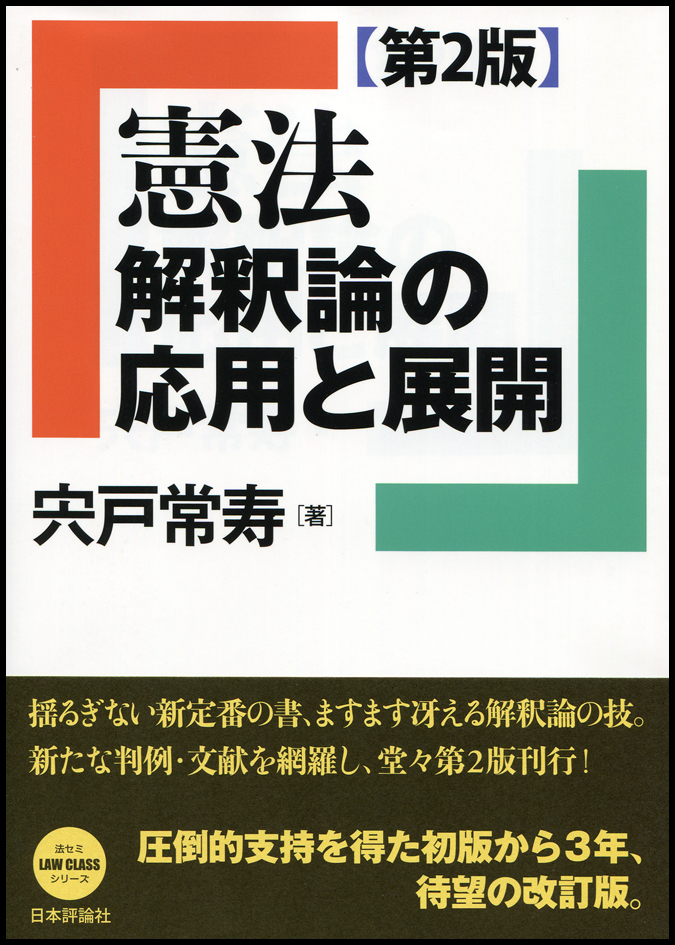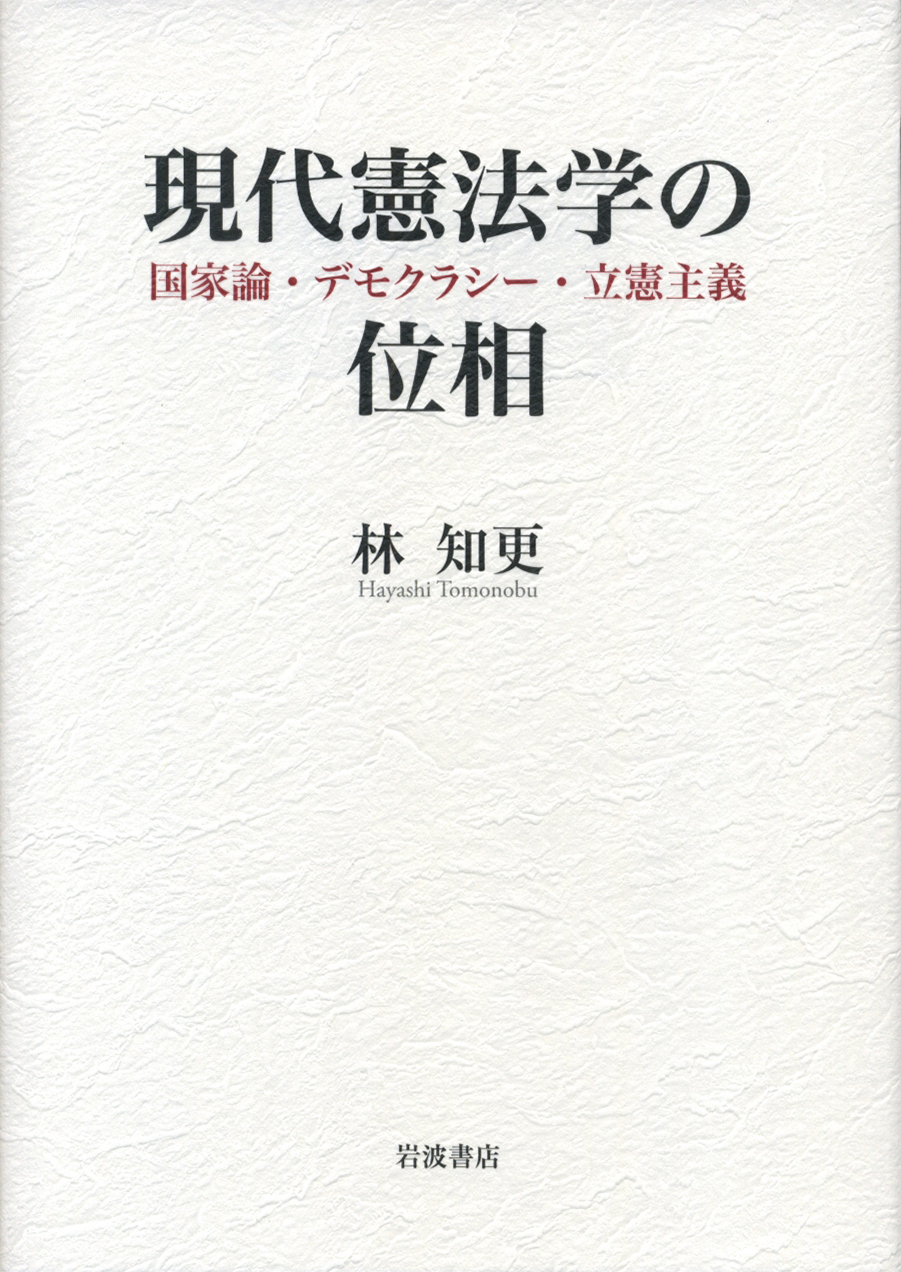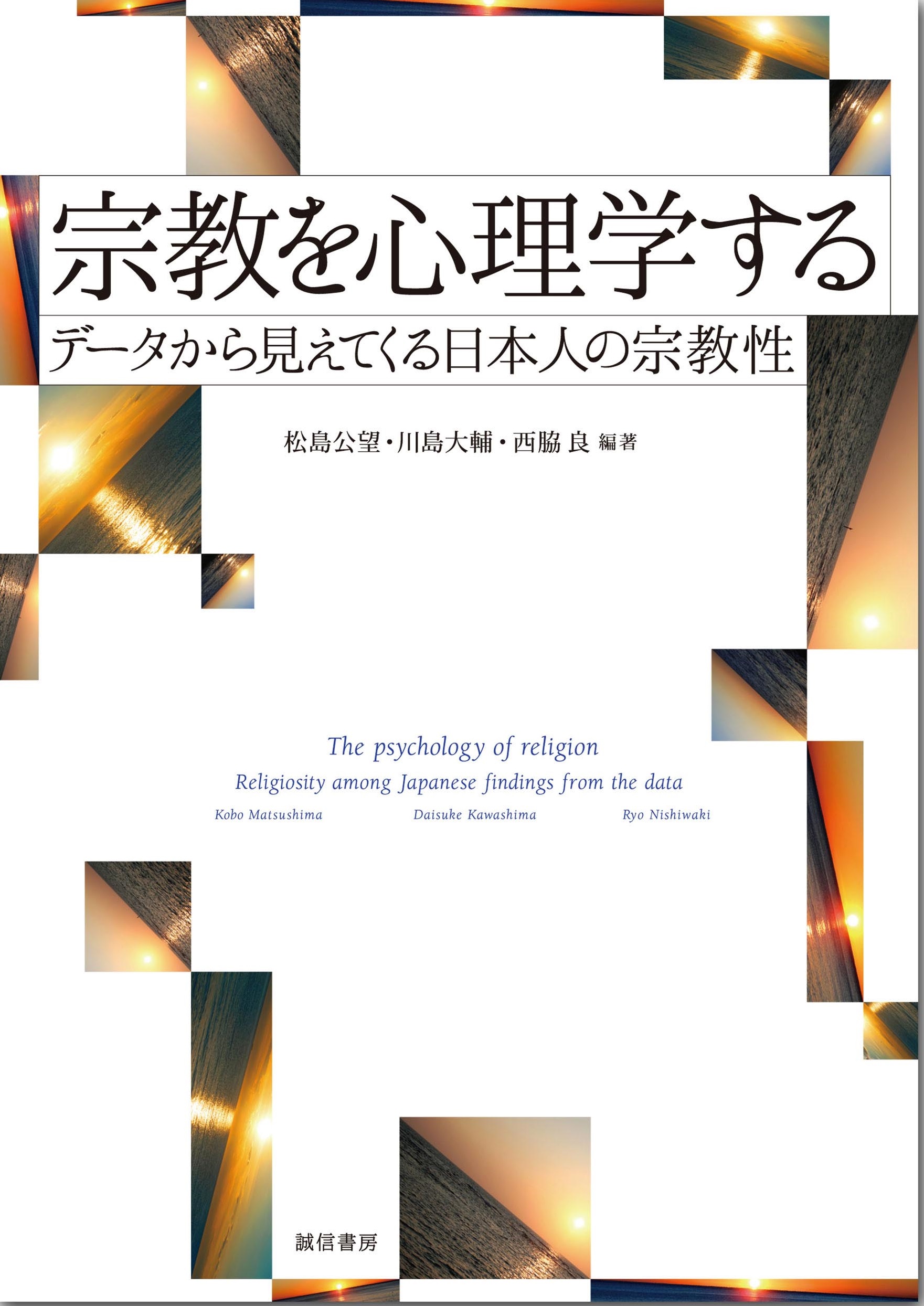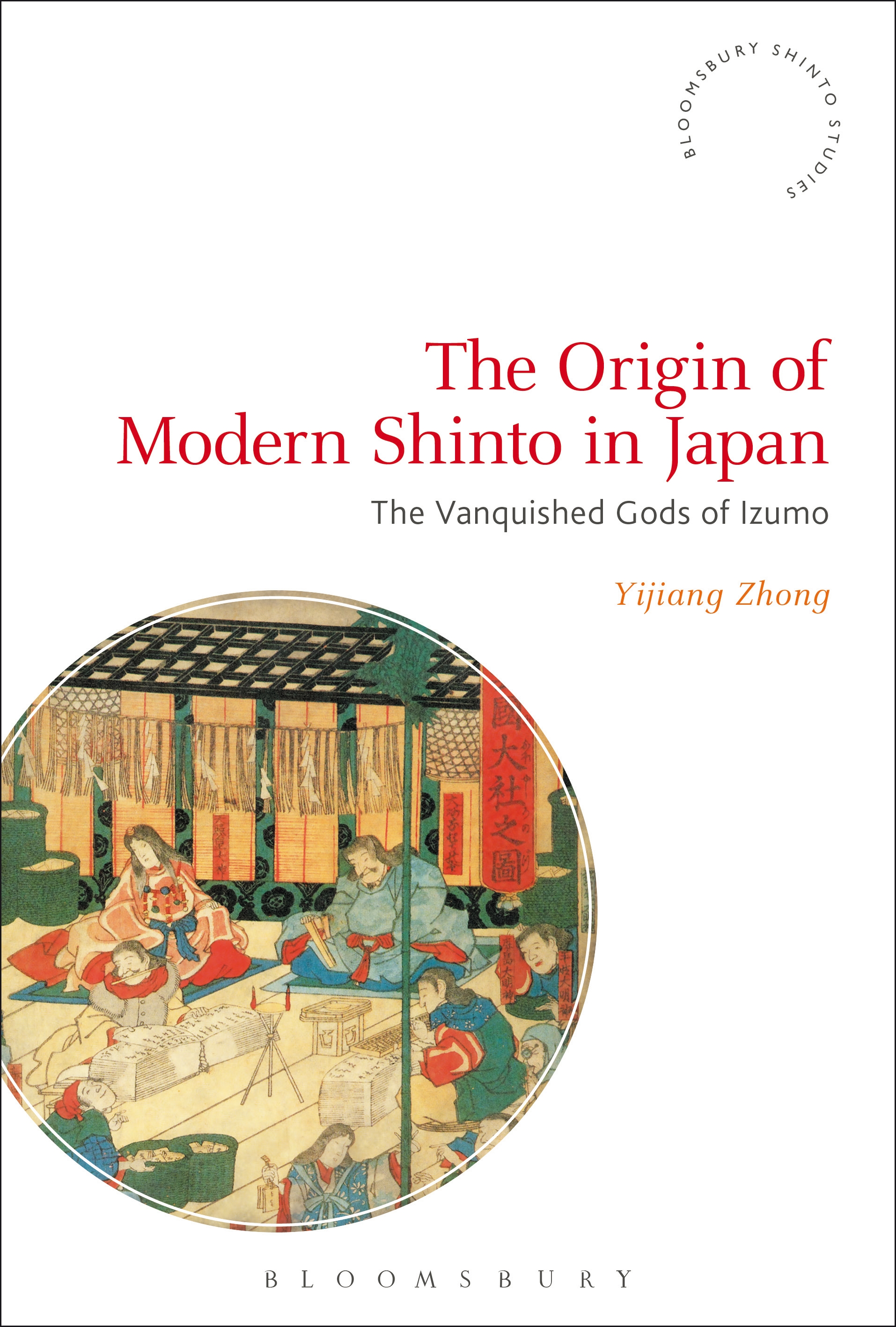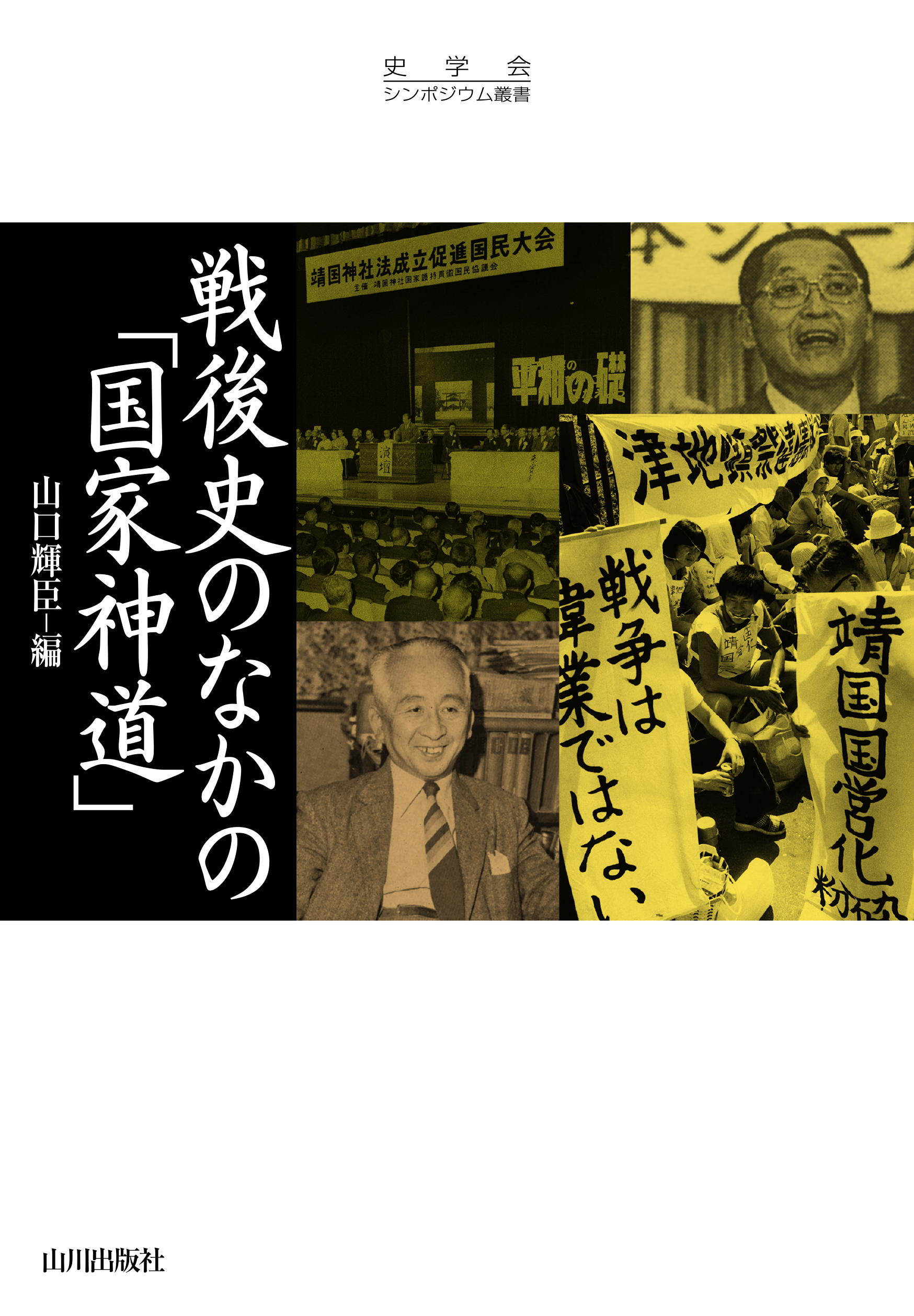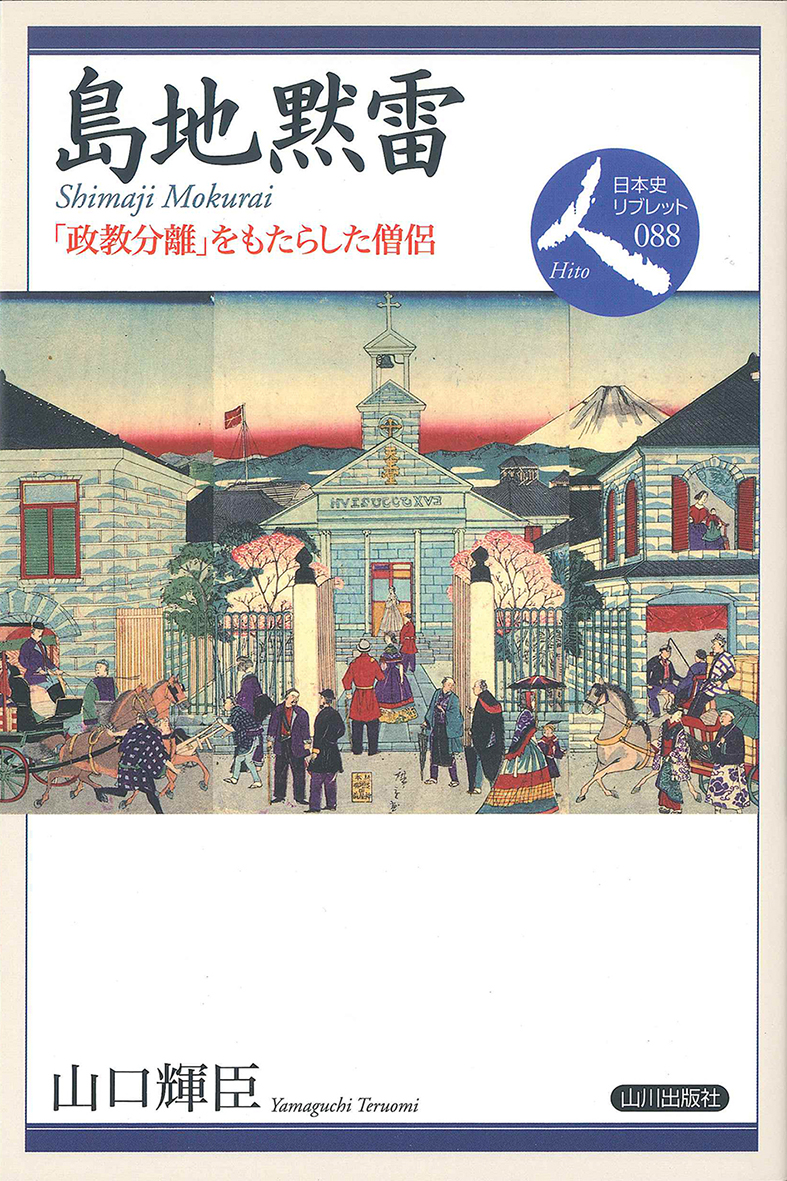
Title
Libretto of Japanese History: Human 088 Shimaji Mokurai (A Buddhist Monk who brought about the separation of state and religion)
Size
104 pages, modified A5 format
Language
Japanese
Released
January 20, 2013
ISBN
978-4-634-54888-6
Published by
Yamakawa Shuppan-sha
Book Info
See Book Availability at Library
Japanese Page
There is a conflict between researchers on the relationship between the state and religion in modern Japan. Certain researchers tend to latch onto the concept of State Shinto in understanding the relationship between state and religion. However, others try to find different explanations because the concept of State Shinto might result in misunderstandings. Nevertheless, there are certain points on which both sides agree, despite these differences. One point of agreement is that the monk named Mokurai Shimaji (1938-1911) had a profound influence on the formation of the relationship between the state and religion in modern Japanese history. This book attempts to understand the process of establishing the relationship between the state and religion through a critical biography of Mokurai Shimaji.
Mokurai Shimaji was born in the Honganji-ha temple of the Jyodo-Shinshu sect in the territory of the Choshu-han. Mokurai was a prominent figure in Choshu-han during the process of Jyodo-Shinshu temple reforms, and right after the Meiji Restoration, he became an active member of the Hongan-ji temple. The major turning point for Mokurai was when he became the negotiator for Jyodo-Shinshu with the government. At the time, there was a plan for the next head of Hongan-ji temple to accompany the Iwakura delegation. This plan was not realized. Nevertheless, Mokurai was sent to Europe and India after the visit by the delegation.
Through this visit, Mokurai learned the concept of "religion," which was new to Japan at that time. He started to use the concept of religion to promote Buddhism by insisting that Buddhism was the sole teaching in Japan that should be defined as a religion and that it was the only idea that could compete against Christianity. Simultaneously, he was overwhelmed by Western culture. Christian priests were proudly claiming that Western culture was the result of Christianity. If Mokurai were to accept this idea, it would have led him to the unbearable conclusion that civilization could only be developed by Christianity. He avoided this conclusion by insisting that European civilization was based on science instead of religion.
After coming back to Japan, Mokurai became active in transforming government policy. He insisted on the "separation of state and religion", which provided Buddhism with freedom to conduct religious activities for confronting Christianity. Mokurai succeeded in realizing most of his ideas by using the contacts from his home base, Choshu-han, and by developing a persuasive logic that was based on the situations in which he found himself.
The relationship between the state and religion was transformed in modern Japan because it came to use the concept of religion in establishing the principle of the "separation of state and religion". However, religion was limited even further by religious leaders who separated it from civilization. This has led to the formation of a society in which religion has been almost forgotten, and its role in society has become limited. Strangely, Mokurai Shimaji was the biggest contributer to this phenomenon.
(Written by YAMAGUSHI Teruomi, Associate Professor, Graduate School of Arts and Sciences / 2018)



 Find a book
Find a book


